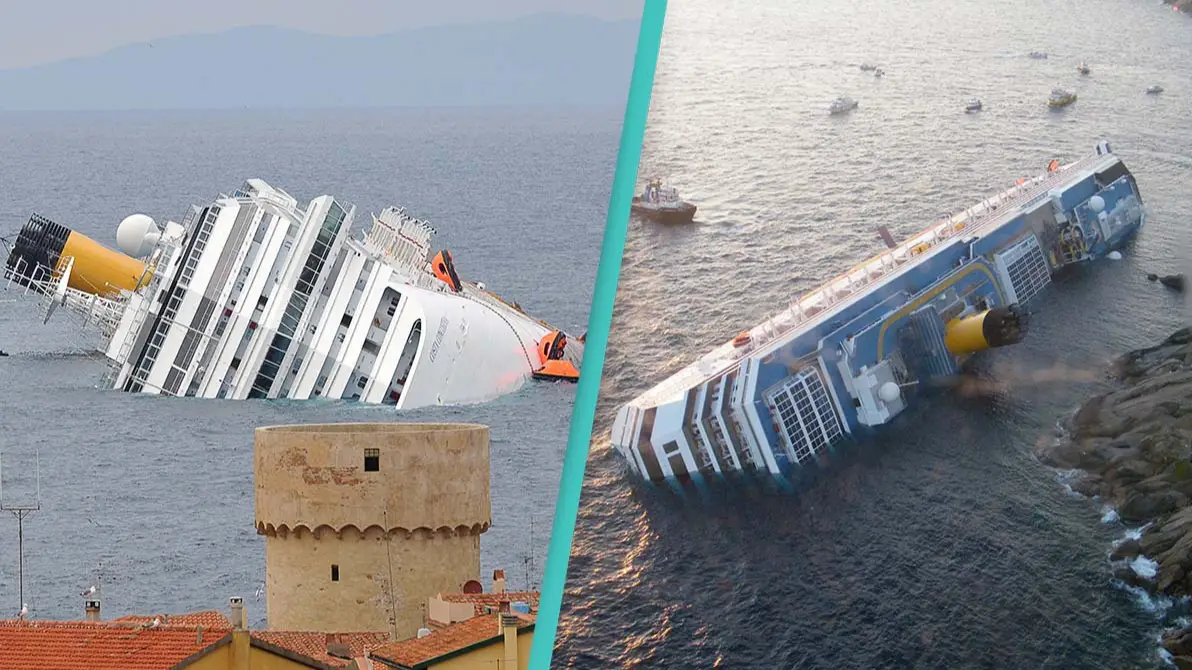
A cruise ship disaster that cost the lives of dozens of passengers was a result of human error.
In 2012, the Costa Concordia cruise ship set sail from the port of Civitavecchia, Italy, on January 13, carrying more than 3,000 passengers and over a 1,000 crew members.
Captain Francesco Schettino was the shipmaster at the time, and they were just a few hours into their journey when disaster struck.
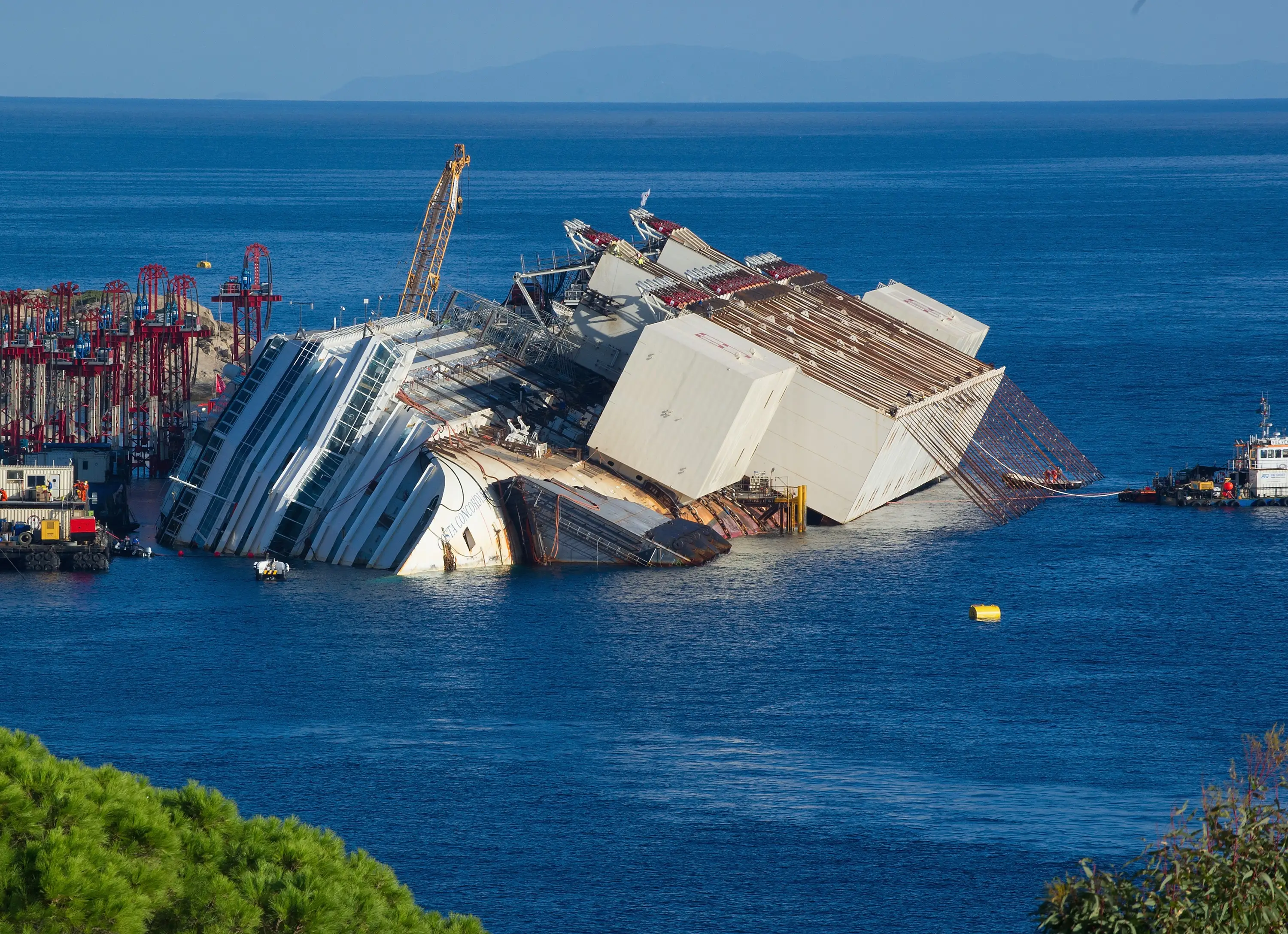
Advert
As they traveled to Giglio Island, Tuscany, it's believed Schettino wanted to get close to the shore so that passengers could get a good view.
His decision reportedly deviated from the cruise ship's planned route.
The crew then brought the ship too close to the shore and ended up hitting the rocks. As you'd imagine, the impact damaged the ship and water began seeping in, thus putting the 4,229 people on board in danger.
As more water starting to come onboard the ship, its engine rooms became flooded and caused a blackout, BBC News reported.
This is when the harbormaster was informed of what was going on, but rather than tell them they'd struck a rock, Schettino and his crew just told them of the blackout.
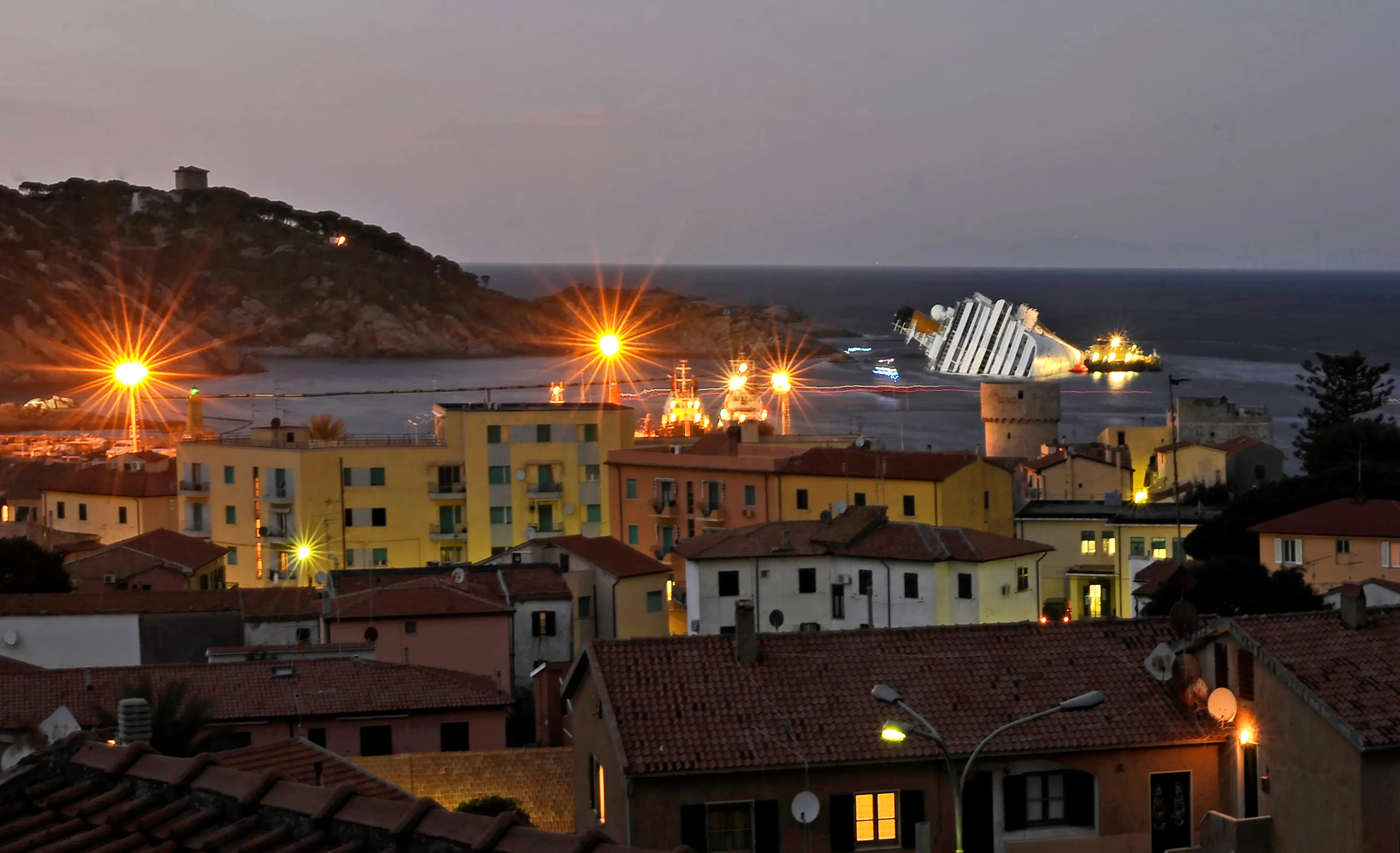
Eventually the ship titled 30 degrees, sparking the captain to call for everyone to abandon ship just before 11pm local time.
While it's considered a captain's duty to stay onboard a ship until all (or most) passengers have been evacuated, Schettino quickly fled back to dry land.
A coastguard commander had ordered the captain to get back on board, but Schettino refused.
He later claimed to have 'fallen' into a lifeboat as a result of the ship's tilt.
Most of the passengers made it safely off the ship, but sadly 32 did not and died as a result of the incident.
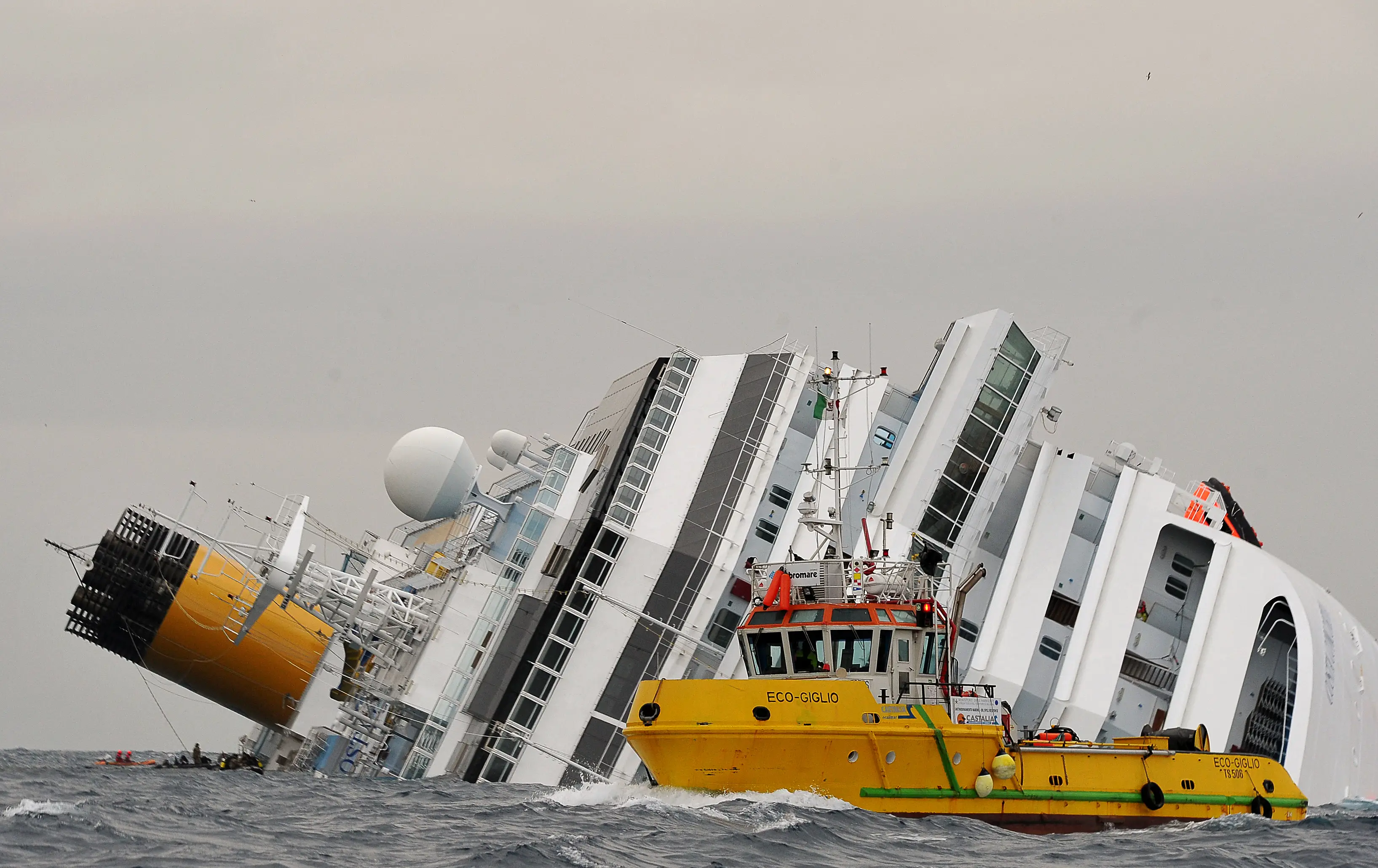
As well as deviating from the cruise ship's planned route, because of a language barrier between Indonesian helmsman Jacob Rusli Bin and the captain, he steered the boat in the opposite direction to which Schettino ordered.
It took 13 seconds to correct the error but during the manoeuvre the ship's stern collided with the rocks.
Schettino went on to blame Rusli Bin for the incident and argued that had he reacted correctly to his order, the crash would have never happened.
However, an Italian naval admiral testified in court refuted these claims and said that even if Rusli BIn had reacted in time, the crash would have still occurred.
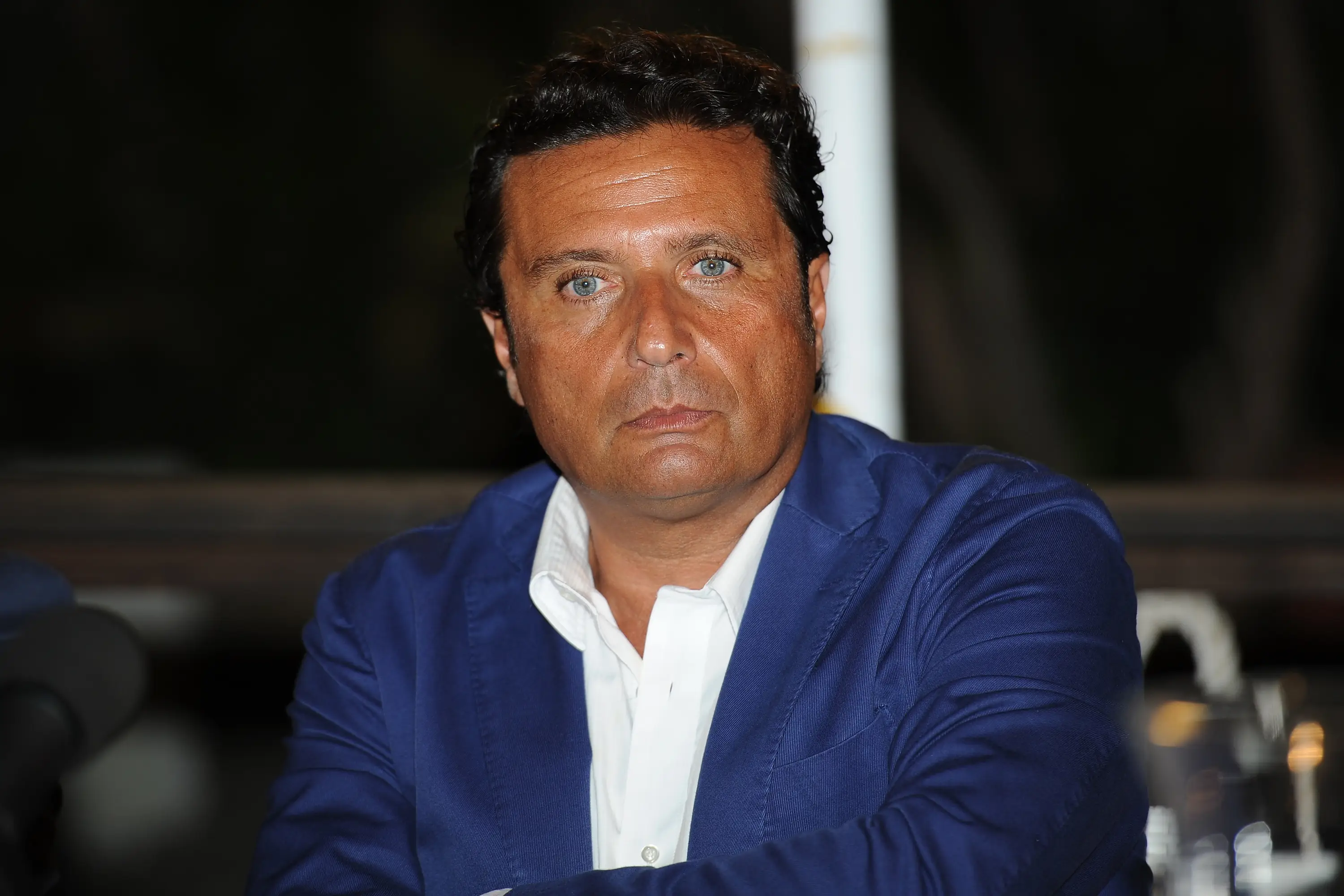
Three years after the crash and Schettino was found guilty of manslaughter, causing a shipwreck, abandoning ship before passengers and crew were evacuated, and lying to authorities about the disaster. The charges landed him with a 16-year jail sentence, which began in 2017.
Several others, including Roberto Ferrarini (the company's crisis director), were also charged in relation to the crash.
Topics: Cruise ship, Travel, News, World News